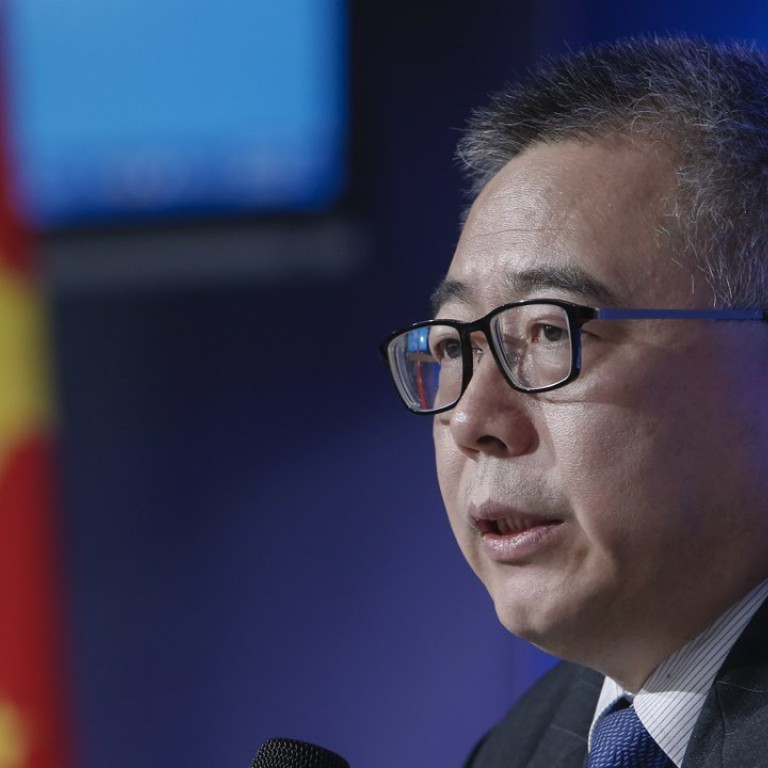
Negotiators try to thrash out draft climate change agreement with 'dirty trade-offs' between rich and poor countries in Paris talks
Negotiators at the Paris climate change summit scrambled to boil down the text of a 43-page draft agreement to 29 pages on Wednesday afternoon, but key differences remain.
Observers and pressure groups say potential “dirty trade-offs” between countries and key negotiating groups during the remaining days of the summit this week could endanger an ambitious post-2020 climate deal and instead lead to a weak “minimalist” agreement.
The most contentious issues are defining the differing responsibilities of richer and poorer countries, finding the cash to help the most vulnerable nations and beefing up emission reductions targets, according to France’s Foreign Minister Laurent Fabius, who chairs the negotiations.
READ MORE: China, India, Brazil, South Africa show ‘united front’ on principles for climate change deal
Su Wei, China’s chief climate negotiator,said: “This is still an intermediate text, all countries’ stances are included. Nothing is agreed until everything is agreed.”
He and the Chinese delegation office at Le Bourget were later due to meet their counterparts from the other three BASIC developing nations - India, Brazil and South Africa.
The four major emerging economies have found themselves under pressure as more than 90 countries have joined what they term a “high ambition coalition” at the climate talks.
They include smaller developing nations, the European Union, the United States and some countries most at risk from the effects of climate change.
US special climate envoy Todd Stern was joined by representatives from the EU and island nations at a press briefing on Wednesday, pushing for provisions such as limiting temperature rises to under 1.5 degrees Celsius, a transparency system on emission reductions for all countries and a review mechanism to ratchet up national targets to tackle climate change every five years.
This is still an intermediate text, all countries’ stances are included. Nothing is agreed until everything is agreed
Emerging economies have said such demands failed to recognise rich nations’ historical responsibility of emitting greenhouse gases and warming the planet.
The coalition said the countries were not negotiating together, but trying to add momentum for a strong deal and any country sharing a similar stance could join.
Yet the formation of the coalition - with rich, poor, big and small countries- casts a shadow over the negotiating group known as G77 and China, consisting of 133 developing countries.
“Though it is not aimed at shaking up G77 and China, the coalition could put pressures on bigger emerging economies,” said Jan Kowalzig, a climate policy advisor with the charity Oxfam.
Xie Zhenhua, China’s special representative on climate change, said on Wednesday differences in stances among all developing countries would make it harder for them as a whole to negotiate a better deal, according to an observer who was briefed on his comments.
Xie said on Wednesday the cleaned draft remained an “open” text and relatively balanced.
READ MORE: 2015 may be the warmest on record, but heat waves will only intensify unless we act now
“This should be the starting point of further negotiation. We BASIC countries are willing to find the landing point [for our differences] with other countries,” said Xie.
With different positions deeply entrenched, Kowalzig and other observers from environmental pressure groups warned that countries may have to trade for a much weaker agreement.

